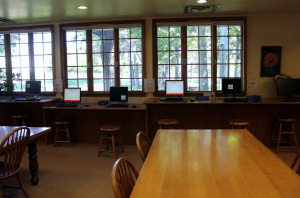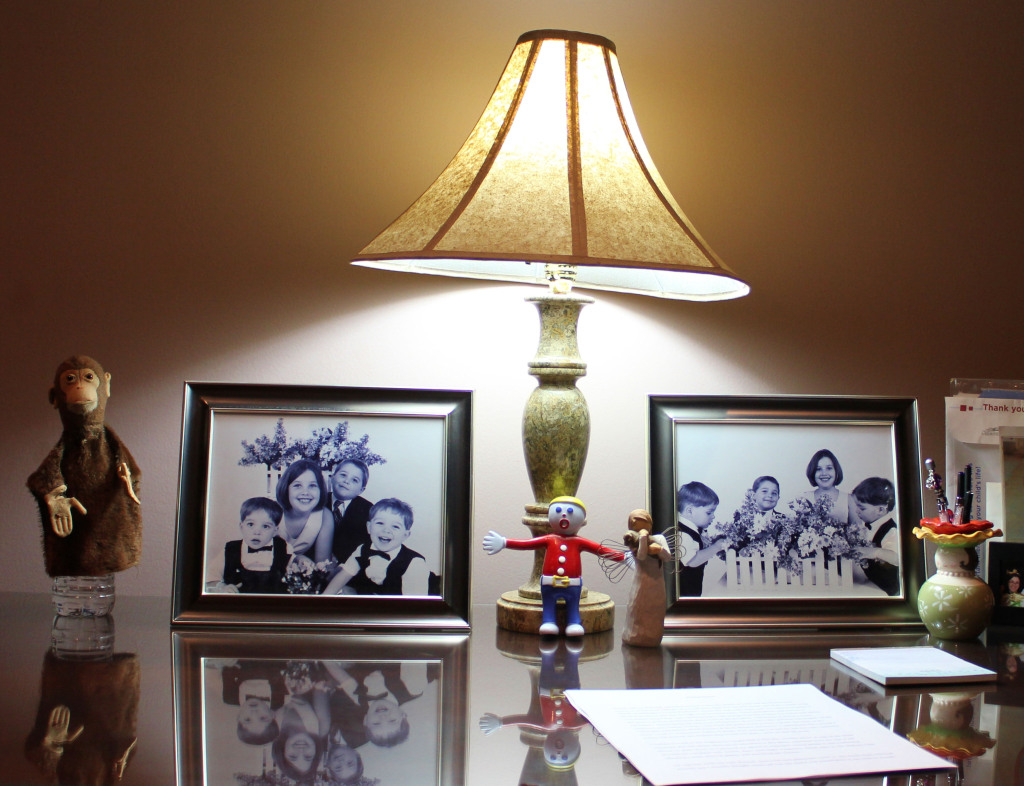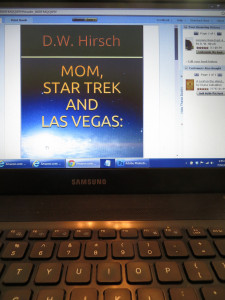Armed with an iPad and wireless keyboard, I have the ability to write just about anywhere. On a late September day, I drove north in the hope of seeing the first sign of fall displayed in the color of the trees. With the tools of my trade in tow, I stopped to do a little creative work in the library of a small town, Bad Axe, located smack dab in the middle of the thumb of Michigan’s Lower Peninsula. About two and a half hours and 125 miles from home, I stood in the foyer and read through local advertisements, tourist pamphlets, and notices of community events that were tucked along a wall. Intrigued by the pioneer log cabins just across the street, I picked up literature about them in the pamphlet, “Museums of Huron County, Michigan.” Appreciating the vast acres of farmland all around, I also grabbed information on the “Huron County Nature Center.” One unexpected but pleasant surprise (please don’t think I’m as geeky as I appear right now) was the last copy of the “Michigan Antiquarian Book Dealers & Book Binders Directory.” I anticipated that a friend’s name, Phil Rosette, would be somewhere within its pages, so I had to take it. As soon as I found his and his wife’s business listing, I realized the distance from home just didn’t seem all that far away.
I looked forward to the inspiration I might find in this new writing venue. A sign in the foyer requested that cell phone discussions only take place here, a space separated from the rest of the library by glass doors, so I silenced my phone as requested, before going into the computer area. Inside, there were eight computers, three of which were being used by patrons checking e-mail, playing games, and searching the Internet.
I set up my equipment at a long, unoccupied table and began typing. I made progress on an article until one well-dressed, sport-coat clad gentleman came in. His smile made him look friendly, and I actually thought maybe he was the mayor just stopping by to say hello to friends and neighbors. He sat down at one of the computers and began typing. I didn’t find the clickity-clack of his keyboard to be distracting. Muffled conversations with his constituents were tolerable. But this man’s chomping gum…it was loud, endless, and just as aggravating as fingernails running down a chalkboard. Ugh! I frantically reached for my ear buds, crammed the plug into the jack of my cell phone, and turned up the volume on my music selection. The pop-country music group Rascal Flatts drowned out this professional-looking man’s annoying habit and calmed my nerves. However, I could no longer focus on my writing.
Evidently, I have lost my youthful ability to tune out the world around me in order to concentrate and get my work done. Having grown up in a 900 square-foot home with one sister, two brothers, my parents and a dog, I used to sit at our family’s kitchen table to do my school homework. The TV or radio served as my background noise. Neither kicked out neutral, white noise, but both helped me control the sounds of a busy household environment.
Now a mother to four nearly-independent children, I have the luxury to pursue a lifelong dream: writing my first book. In the past year, I’ve tried writing on airplanes, but I don’t like the thought of anyone peering from behind to read my work-in-progress before it’s been revised and polished. Local coffee shops are out of the question; I might run into someone I know and neglect my work. Libraries would seem to make perfect sense, but here I was failing to appreciate the ambiance.
Immediately, I missed the solitude of my home office, the comfort of my own chair, and a self-indulgent cup of cream-and-sugar-laden coffee. I wondered how other writers could get anything done in public places like airports, coffee shops, and not-so-quiet libraries. I realized that the spaces we choose to write in often reflect our personalities.
My favorite writing space certainly says a lot about me. The office itself is mostly mine. Shelves holding my reference guides, journals, and a voice recorder share space with my husband’s golf and sports memorabilia. Filing cabinets hide my projects, mementos, and ideas squeezed tightly between the kids’ school papers and activity schedules. But it’s the desk that gives away the most telling signs of who I am.
In the center of the desk is a lamp I purchased because it reminded me of my former pastor, Janet Noble-Richardson. She annually took teenagers who were involved in our church’s youth group from our city of Livonia, Michigan to New Wilmington Mission Conference at Westminster College in Pennsylvania. One year when Janet couldn’t be there, another friend, Linda, and I substituted as chaperones to continue the tradition for the children a little while longer. I spotted the stone lamp during an excursion from the conference to The Silk Road Fair Trade Market. I was drawn to the piece because it had been made in Pakistan, the place where Janet had spent the first eleven years of her life living with her missionary parents and siblings. I could offer you a hokey explanation that she was like a “light unto the world,” which in fact she was, but that connection never entered my mind until now. Simply, the lamp reminded me of her because it came from the earth where she grew up. I missed her. She died in a car accident in 2006, the year before this trip. Linda still grieved for Janet too. She bought a matching lamp.
As I look at the other items on my desk, I know most of them hold special interest for me. Black and white pictures of my children, dressed in fancy clothes for my brother’s wedding, lie on either side of the lamp. Mr. Bill—yes, the one from Saturday Night Live of long ago—is a gift from my son. An “Angel of Friendship” figurine is from a best friend. My favorite Christmas photo sits out all year long and reminds me of my family’s playful side: that time we were wrapped in ribbons and bows. A bud vase holds pretty, girly, crystal-adorned pencils and pens that contrast with the most recent desktop accessory: one old, ugly, tattered Stieff puppet that I bought at an estate sale. What could have easily ended up in someone else’s trash became a treasure to me when it helped me get to know a friend’s shy five-year-old son. The boy at first thought the monkey was creepy (it is), but after a fun guessing game of I Spy, he affectionately named it “Chocolate.” It now sits over a plastic water bottle and remains one of the best memories I’ve ever bought, and it cost me merely 50 cents.
Besides the personal items, there are almost always piles of papers, the most ominous of which is the stack of “to-dos.” When I get overwhelmed, or take a picture for a blog post, I hide these piles from view and enjoy the multi-faceted illusion of having nothing to do and looking more organized than I am. At ease and surrounded by feelings of love, I leave the TV and radio off, sit down at my computer, and crack open the blinds of my window to the natural beauty outside. Noise can’t compete with my inner thoughts. Aah. This is my favorite writing space.
I’d love to know where your favorite writing space and/or your dream place is.
(One day, I hope to be writing in a beachfront condo overlooking the cool, white, crushed quartz sand that lines the shore in a certain place along the Gulf of Mexico. Maybe it won’t be completely quiet, but it will be peaceful.)


